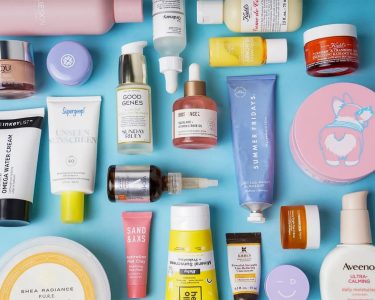Exfoliation is an important step in any skincare routine. It helps to remove dead skin cells, unclog pores, and promote a smoother complexion. However, when it comes to individuals with fungal acne-prone skin, there’s a fine line between reaping the benefits of exfoliation and causing more harm than good. Over-exfoliating can disrupt the delicate balance of the skin, aggravate fungal acne, and lead to various skin issues. Understanding the dangers of over-exfoliating and adopting a gentle approach is crucial for maintaining healthy skin.
Fungal Acne: A Recap
Before delving into the dangers of over-exfoliating, let’s revisit fungal acne. Unlike traditional acne, fungal acne, or pityrosporum folliculitis, is caused by an overgrowth of yeast called Malassezia on the skin’s surface. These yeasts thrive in warm, humid environments and can lead to the formation of small, itchy bumps that resemble acne. Managing fungal acne requires a different approach, as the use of certain skincare products and techniques can exacerbate the condition.
The Benefits and Risks of Exfoliation
Exfoliation involves the removal of dead skin cells from the surface of the skin. When done correctly and in moderation, exfoliation can provide several benefits, such as:
1. Smoother Texture: Regular exfoliation helps to refine the skin’s texture, leaving it feeling smooth and soft.
2. Improved Skin Tone: Exfoliation can promote a more even skin tone by reducing the appearance of hyperpigmentation and discoloration.
3. Enhanced Absorption: By removing the outer layer of dead skin cells, exfoliation allows for better absorption of skincare products, maximizing their effectiveness.
However, for individuals with fungal acne-prone skin, over-exfoliation can have adverse effects.
The Dangers of Over-Exfoliating Fungal Acne-Prone Skin
1. Disruption of the Skin Barrier: Over-exfoliating can compromise the skin’s natural barrier function, leading to increased sensitivity and moisture loss. This can make the skin more susceptible to fungal infections and exacerbate the symptoms of fungal acne.
2. Irritation and Inflammation: Excessive exfoliation can cause redness, inflammation, and irritation, further aggravating fungal acne. The skin may become more sensitive and prone to itching and discomfort.
3. Increased Oil Production: Over-exfoliating can trigger an overproduction of sebum, the skin’s natural oil. This can lead to a vicious cycle, as excess oil can contribute to clogged pores and the growth of Malassezia yeast, worsening fungal acne symptoms.
4. Delayed Healing: Over-exfoliation can impair the skin’s ability to heal and repair itself. It can prolong the recovery time for existing acne lesions and lead to the formation of new ones.
A Gentle Approach to Exfoliation
To avoid the dangers of over-exfoliating fungal acne-prone skin, it’s essential to adopt a gentle approach:
1. Frequency: Limit exfoliation to 1-2 times per week, depending on your skin’s tolerance. Avoid daily or excessive exfoliation.
2. Choose the Right Exfoliant: Opt for gentle exfoliating products that are specifically formulated for sensitive or acne-prone skin. Look for ingredients like salicylic acid or lactic acid, which can help unclog pores without causing excessive irritation.
3. Be Mindful of Physical Exfoliation: Avoid harsh physical exfoliants, such as rough scrubs or brushes, as they can cause micro-tears in the skin and worsen inflammation.
4. Listen to Your Skin: Pay attention to how your skin reacts to ex
foliation. If you notice increased redness, irritation, or sensitivity, reduce the frequency or intensity of exfoliation.
5. Consult a Dermatologist: If you’re unsure about the best approach to exfoliation for your fungal acne-prone skin, seek guidance from a dermatologist. They can provide personalized advice and recommend suitable products for your specific needs.
Conclusion
While exfoliation plays a vital role in maintaining healthy skin, individuals with fungal acne-prone skin must exercise caution to avoid over-exfoliating. Striking a balance between gentle exfoliation and preserving the skin’s natural barrier is essential. By understanding the dangers of over-exfoliation and following a mindful approach, individuals can effectively manage their fungal acne and promote a healthier, clearer complexion.




